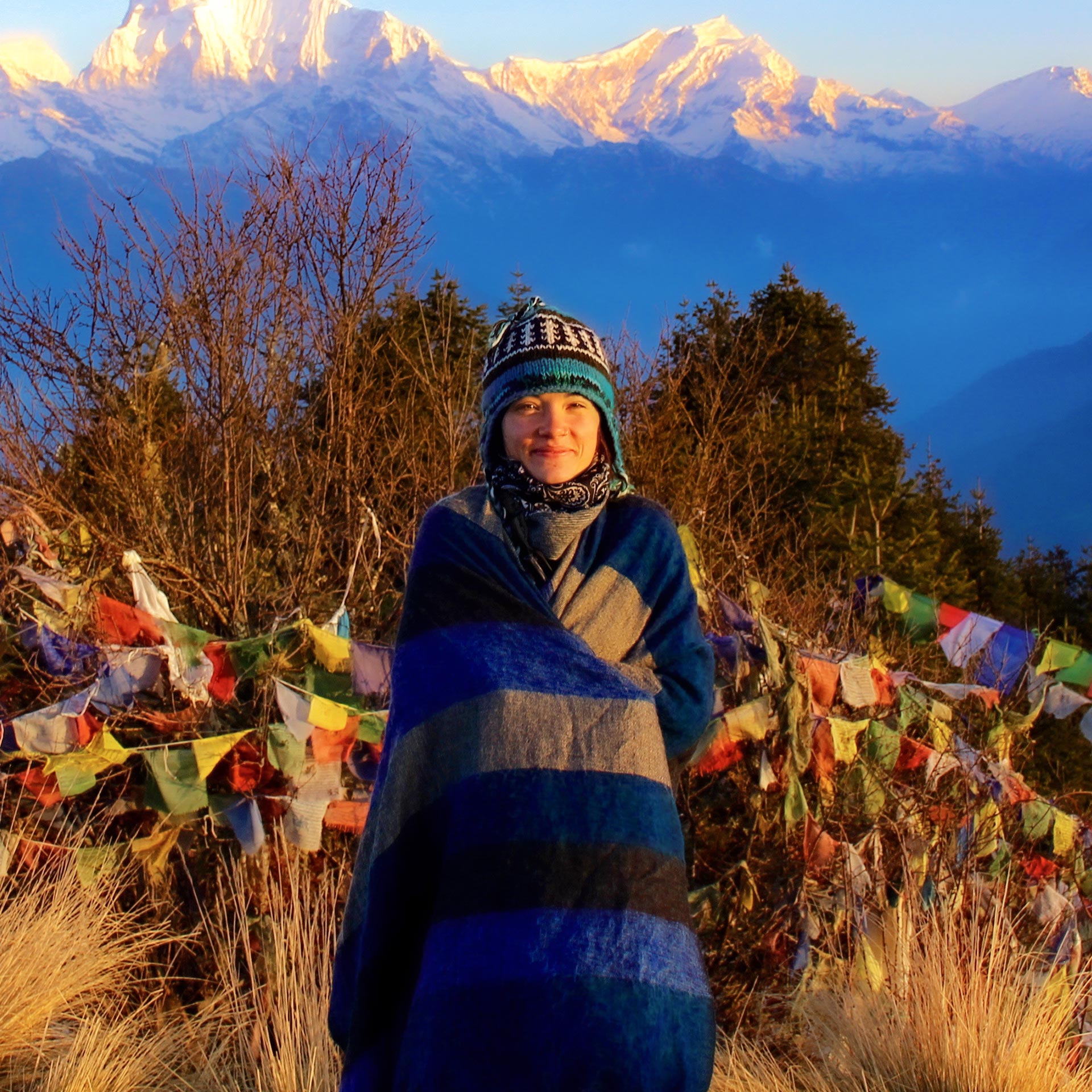Credits
16
Prerequisites
None
Language of Study
Nepali
Courses taught in
English
Dates
Sep 3 – Dec 16
Program Countries
Nepal
Program Excursion Countries
India
Program Base
Kathmandu
Critical Global Issue of Study
Development & Inequality

Witness Nepal’s challenges in balancing tradition and modernity, while negotiating economic, political, and social change in a dynamic period of its history.
16
None
Nepali
English
Sep 3 – Dec 16
Nepal
India
Kathmandu
Development & Inequality
In the past few decades, Nepal has seen tremendous changes in development, discourse surrounding equality and inclusiveness, and human and civic rights. Live in the Kathmandu Valley, home to seven UNESCO World Heritage sites, and learn from experts, activists and academics about development, gender and social change. Visit organizations and institutions to understand how they work with government and nongovernment agencies to make meaningful change in society. Learn Nepali from expert teachers in small, dynamic classes. Connect with NGOs, INGOs, and bilateral and multilateral donors. Visit the Chitwan National Park in the plains to learn about conservation, community development and collective action. Then, trek from village to village along ancient Himalayan trade routes going as high as 13,000 feet to see community development efforts as well as Nepal’s remarkable biological, geological, and cultural diversity. In the final four weeks, research a topic of your choice while conducting independent field study, or gain professional skills in an international work environment as part of an internship.
None


Learn about conservation and development from the communities that live within the premises of Chitwan National Park. Interactions with activists, scholars and community members will provide a deeper insight into how community development and conservation efforts complement each other in the first national park, situated in the Terai belt.
Immerse yourself in a rural community working with homestay families on their farm. Weed, plough, or participate in a local group or a small community project with village youth. Fieldwork focuses on ecotourism; sustainability of development in mountainous areas; community development efforts; culture and religion; and economic links. Connect with villagers, learn social customs and norms, and work with community members to assimilate while remaining ethically aware of your interactions with community members.
Please note that SIT will make every effort to maintain its programs as described. To respond to emergent situations, however, SIT may have to change or cancel programs.
Upon successful completion of the program, students will be able to:
The following syllabi are representative of this program. Because courses develop and change over time to take advantage of dynamic learning opportunities, actual course content will vary from term to term.
The syllabi can be useful for students, faculty, and study abroad offices in assessing credit transfer. Read more about credit transfer.
Development, Gender, and Social Change in the Himalaya – syllabus
(DVST3000 / 3 credits)
An interdisciplinary course conducted in English with required readings and relevant educational excursions. Using gender as a lens for engaging with development theory and practice, the seminar examines historical and contemporary Nepal and the social, political, cultural, environmental, and economic forces — both internal and global — that have shaped and continue to define the country. Lecturers are a cross-section of Nepali society, including activists and experienced academics drawn from academic institutions such as Tribhuvan University, Kathmandu University, and the Fulbright Commission. Site visits to nongovernmental organizations may include rights and development agencies like MITINI Nepal, ICIMOD, and Teach4Nepal, among others.
Beginning Nepali: Intensive – syllabus
(NEPA1506 / 6 credits)
Intermediate Nepali: Intensive – syllabus
(NEPA2506 / 6 credits)
Advanced Nepali: Intensive – syllabus
(NEPA3506 / 6 credits)
These fun, interactive courses help students develop a working fluency in Nepali language with an emphasis on speaking and comprehension skills through classroom and field instruction combined with practice in reading and writing the Devanagari script. Classes are taught two-and-a-half hours daily. The expert instructors are native speakers with many years of teaching and teacher training experience with SIT and the Peace Corps. Instruction includes a variety of interactive, communication-based language teaching techniques that incorporate cultural information into language learning, which helps facilitate ISP research and internships during the final month of the program.
Field Methods and Ethics – syllabus
(ANTH3500 / 3 credits)
A course in the concepts of learning across cultures and from field experience and an introduction to the Independent Study Project and Internship and Seminar. Material includes cross-cultural adaptation and skills building; project selection and refinement; appropriate methodologies; field study ethics and the World Learning / SIT Human Subjects Review Policy; developing contacts and finding resources; developing skills in observation and interviewing; gathering, organizing, and communicating data; and maintaining a work journal.
In addition to taking the above courses, students will also need to enroll in one of the following two courses:
Independent Study Project
Independent Study Project – syllabus
(ISPR3000 / 4 credits)
At the end of the program, you will spend four weeks working on an Independent Study Project (ISP), pursuing original research on a topic of interest to you. The ISP is conducted in Kathmandu or, conditions permitting and with program approval, in other parts of Nepal, and is an opportunity for students to conduct firsthand, meaningful, and original field study projects. Sample topic areas include ecotourism and its effect on wildlife management; geographies of development; preservation of temple architecture and heritage sites; water scarcity in Kathmandu valley; statelessness and discourse on citizenship; community forestry; migration and population issues; rural development and aid; and women’s health challenges. A large number of students have gone on to use their ISPs as the basis for further research under Fulbright fellowships in Nepal or in securing professional positions with NGOs, the State Department, and the United Nations.
Sample ISP topic areas:
Browse this program’s Independent Study Projects / undergraduate research.
OR
Internship and Seminar
Internship and Seminar – syllabus
(ITRN3000 / 4 credits)
This seminar consists of a four-week internship and weekly academic seminar. The aim of the internship is to enable the student to gain valuable experience, enhance their skills in an international environment, and reflect more deeply on key program themes. The internship experience may be with a local community-based development organization, research organization, human rights and advocacy organization, international NGO, or organization working for food security and sustainable development. The internship seminar meets weekly (typically online) so students can reflect on the internship experience, and it includes complementary readings, weekly progress reports, and a final paper and presentation linking the internship learning experience to the program’ s theme. The internship seminar includes a module titled Internship in the Context of Nepal, which is designed to help students build a foundation on which to engage in the internship experience. SIT academic internships are hands-on and reflective.
Sample internships:


Recent positions held by alumni of this program include:
Founder and international advisor at SmartPaani and One Planet Solution, Nepal
Professor of geography at the University of Toronto, Toronto, Canada
Assistant professor of anthropology at the University of British Columbia, Vancouver, Canada
Director of international operations for Nepali Tea Traders, Denver, CO
Independent filmmaker
Director with the Peace Corps, Nepal
Director with the Fulbright Program, Nepal
Many other alumni have used the Nepali language skills they gained on the program to win Fulbright fellowships and secure professional positions in Nepal after graduation.


SIT Study Abroad is committed to ensuring that international education is within reach for all students. We believe in the transformative power of immersive, intercultural experiences and are dedicated to supporting students in their educational journey.
See Full Breakdown
A critical step in preparing for your study abroad program is planning how you will maintain your health and wellbeing. Please review the following information carefully and contact [email protected] with any questions or concerns.
View Information